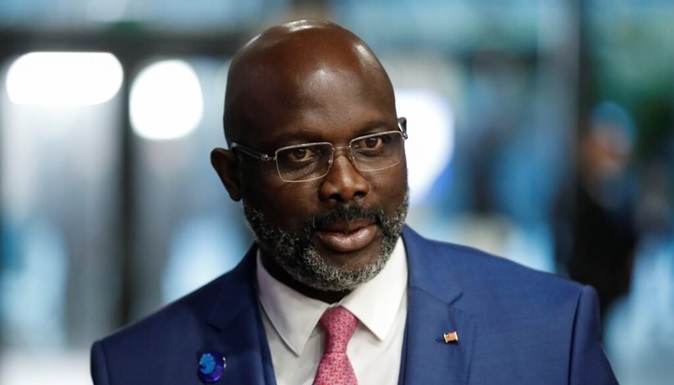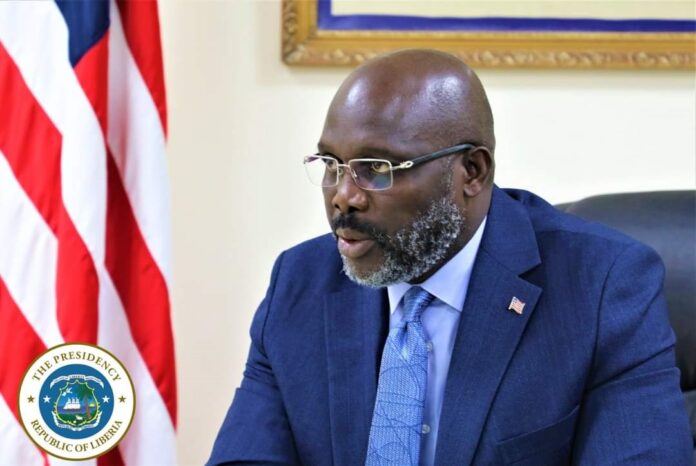LIBERIA – Some rice importers in Liberia have slowed down the importation of the commodity due to corruption, according to people.
People close to the rice industry in the country say as of August 15, Liberia had less than 700,000 bags of rice in stock at combined warehouses and could possibly run out in two weeks.
Consumer statistics revealed that Liberia consumes about 900,000 bags of rice every month; and as it stands, the country is bracing for a shortage of the nation’s staple food.
According to our sources, the potential shortage is due to the refusal of importers of the commodity to do further import until at such time the government pays what it owes them.
Our sources say the George Weah-led government has not delivered on a subsidy package it promised the importers.
According to our sources, even though, the government claimed to make available US$14 Million as a subsidy to rice importers several months ago, the importers are claiming not to receive a dime from the government.
They called on President Weah to set up an Independent body to investigate the US$14 rice subsidy issue.
Recently, a major rice importer in the country demanded the government of Liberia recompense it for losses it accrued to import rice into Liberia during the height of the COVID-19 pandemic.
Sources told Smart News that K and K, which is the largest rice importer in Liberia is demanding the government of Liberia pays it almost US$4 Million for losses it incurred during the period.
K and K is not meeting its quota of rice importation in recent times because it has not been compensated by the Ministries of Finance and commerce; despite several promises to do so, according to our sources.
Already, the price of 25 kilograms of rice has increased from US$13.50 to US$15.00 or more in some places in the country.
This latest revelation contradicts the Liberian government’s statement that it had given US$14 Million to major rice importers in the country as a means of recompensing them for losses they incurred during the height of the COVID period.
It can be recalled that three of President George Weah’s top cabinet ministers came under the spotlight a few months ago for lack of transparency in the alleged allocation of US$14 Million which was intended to subsidize the importation of rice.
Months after President George Weah approved US$14 Million to key rice importers in the country as a subsidy for the continued availability of the country’s staple food in wake of the high cost of freight, a team of investigative Journalists uncovered what appears to be a mystery in the apportionment of the amount.
President Weah approved USS$14 million after importers requested an increment in the price of rice on the local market, citing a hike in the cost of freight for shipment of goods worldwide.
Between 2020 and 2021, there was a large swing in containerized trade flows which was met with supply-side capacity constraints, including container ship carrying capacity, container shortages, labour shortages, continued on and off COVID-19 restrictions across port regions, and congestion at ports.
This mismatch between surging demand and de facto reduced supply capacity then led to record container freight rates on practically all container trade routes.
This prompted Liberian rice importers to request an increment in the price of the commodity on the local market. They claimed the high cost of freight was hurting their businesses.
They expressed fears that there would have been a shortage of rice on the market if there was no adjustment in the price.
This prompted the Liberian leader to hold a meeting with the Rice Importers Association couple of months ago.
In the meeting which was attended by UCI, SWAT, Fouta, K and K, and Fouani, President Weah insisted Government would not allow an increase in the price of the country’s staple food and therefore pledged the government’s commitment to underwrite the extra cost in the freight.
At the time, he requested the ministries of Commerce and Finance to work with importers and experts in government to find out how much it would cost the government to cover the additional charges to ensure the unhindered supply of rice to Liberia.
However, the investigation found out that without dealing with the experts and not doing a proper analysis of the issue, the Ministers of Finance Samuel Tweah, Commerce Mawin Diggs, and State, Nathaniel McGill, now suspended for corruption, unilaterally imagined the US$14 Million figure.
Sources further confirmed that the three ministers did not consult the relevant experts on the issue but put together an imaginary figure which they forwarded to President Weah for approval.
Tweah, Diggs, and McGill did not do any realistic analysis of the situation they did not consult us, one expert revealed, alleging that the US$14 Million, is an imaginary figure they gave the Liberian president for approval.
Several sources who spoke with Journalists who investigated the case have challenged the US$14 Million figure. They claimed that the figure is inflated and unrealistic. They called on President Weah to authorize the General Auditing Commission (GAC) to do a comprehensive audit on how the money was expanded.
Meanwhile, some of the importers that were thought to have received the subsidy have confidentially informed Investigative Journalists that they have not received a dime from the government.
As a result of the situation, investigators have gathered that rice importers are defaulting on meeting their importation quota.
According to documents seen by Journalists, rice importers are defaulting on meeting the one million bags reserved quota that should be kept in their warehouses as required by government regulation; while some have not even imported any consignment.
Efforts made by this medium to speak to the Government on the usage of the US$14 million failed.
Information Minister Lergerhood Rennie who was contacted at the time could not get the relevant information on the rice subsidy issue as those who were involved were said not to be responding to his inquiry.
When further pressed to provide a comprehensive report on those who actually benefited and how much each importer received, Rennie added that those who were involved with the subsidy issue were not cooperating with him.







